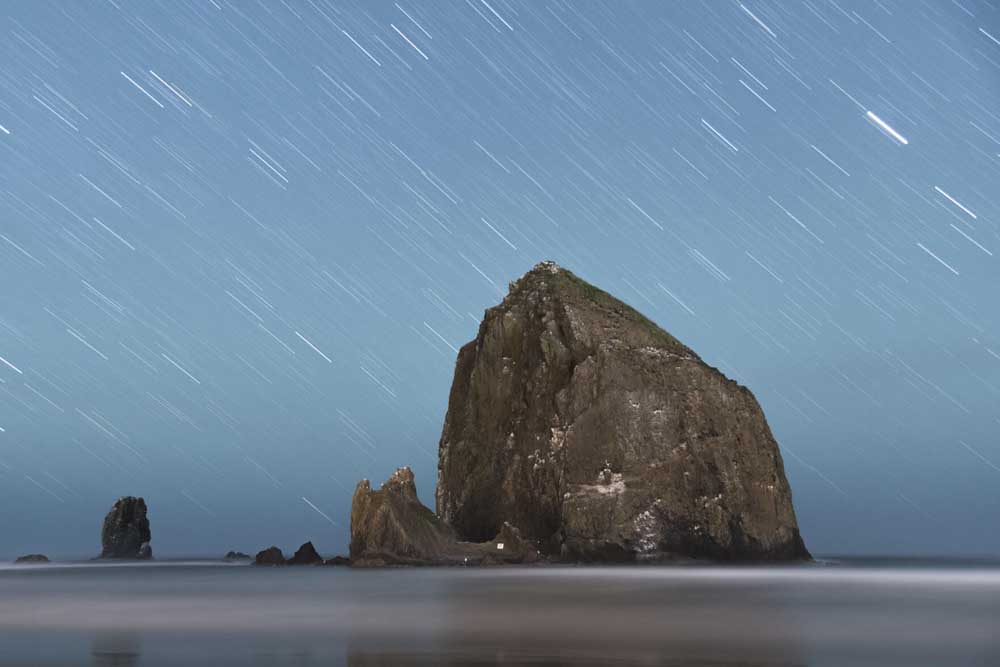A cougar and star trails at Haystack Rock
Published 9:00 am Monday, July 24, 2023

- Star trails light up the sky behind Haystack Rock in Cannon Beach.
The past few weeks have been eventful ones in Cannon Beach. Astorian photographer Lydia Ely, hoping for a glimpse at bioluminescent waves, drove with me late one Wednesday night to Haystack Rock.
We parked after midnight near the beach access stairs by Forest Lawn Road, where we unpacked lenses and tripods. “Let’s make sure we keep talking,” she said as we walked by flashlight toward the rock, thinking of recent cougar sightings.
Days earlier, this section of beach had been closed after a cougar was spotted on Haystack Rock by photographers, likely to have ventured out at night during low tide to hunt birds. Farther south at Nehalem Bay State Park, another campground trail had been closed after a cougar sighting there.
The beach had since reopened after tracks were found leading away from the area, but we remained careful.
There was no bioluminescence to be seen that night, but there were clear, starlit skies. We attempted long exposures, though I soon realized there was a focusing issue with the lens I was using.
Around that time, a sensor light flashed on at one of the hillside homes above the beach. I teased that it must be the cougar.
Those sightings, though, are comparatively rare. While Oregon is home to thousands of cougars, also called mountain lions, state biologists say their prime habitat is in forested areas.
Cautiousness taken, Lydia managed to capture a remarkable 10-minute exposure of star trails — movement in the night sky due to Earth’s rotation. The bioluminescent plankton will have to wait.
In the unlikely event of a cougar encounter in the region, officials’ advice is to stay calm, maintain eye contact and back away slowly. But you’re more likely to encounter a herd of deer or elk.









